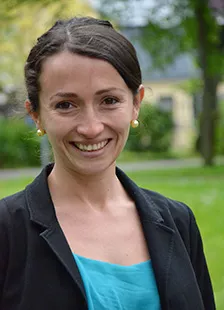Juryn, som består av styrelsen för FALF– forum för arbetslivsforskning, motiverar valet enligt följande:
"Ana Maria Vargas avhandling ger en mycket god etnografisk skildring av arbetsvillkor bland informella arbetare och hur dessa kan påverkas av formaliseringsstrategier. I avhandlingsarbetet har Vargas genomfört fältstudier bland gatuförsäljare och cykel-taxis (rickshaws) i Bogotá, Colombia.
Hennes empiriska material är synnerligen rikt. Den teoretiska grunden och den teoretiska diskussionen är klart framställda och reflekterande. Vargas har genom sin avhandling bidragit till debatten om hur formaliseringsreformer, utifrån idéer om modernisering i utvecklingsländerna, förbättrar arbetsvillkor eller utesluter de mest utsatta grupperna i samhället.
Avhandlingen kombinerar därmed en praktisk samhällelig relevans med en hög vetenskaplig kvalitet. Ana Maria Vargas är dessutom en stor berättare och avhandlingen är mycket välskriven."
Abstract på engelska
Millions of people worldwide work outside the law as street vendors in order to earn a living. However, they often work in fear of police evictions and confiscations since their work is in many places considered illegal. In this context, formalization (steps towards legalization) is often portrayed as a model for empowerment that allows poor street vendors to improve their well-being. Formalization, as a model to manage street vending, is widely promoted by various international development organizations. While important, studies of formalization show that street vendors often resist state control, and the majority continues to work outside the law.
The main research question guiding this study is: how does formalization of street vendors in Bogotá enable and/or hinder their well-being? To examine this question, this study uses an ethnographic approach and the concept of social control within the tradition of sociology of law. The data for this study was collected through ethnographic fieldwork conducted between 2012 and 2014 in the city of Bogotá, Colombia. Three groups were studied: vendors within the transitional zones (a formalization program), two rickshaw driver associations, and itinerant ice cream vendors.
The main findings illustrate that although street vendors work outside the law, they do not operate in a state of chaos or anarchy. Quite the opposite, law and other forms of social control are present in their work. These practices of control often affect their well-being. Despite harsh working conditions, well-being according to them means more than economic survival, and often, street vendors strive to improve their lives and gain independence in their work.
Another finding is that formalization is often directed toward the more established vendors and does not account for the fact that new individuals arrive on the streets every day trying to make a living. Often, the most vulnerable groups (immigrants, women, the newly unemployed) lack the time and knowledge to formalize or simply are not targeted in formalization programs. Without a deep understanding of how social control already operates, the state runs the risk of developing formalization initiatives that undermine the well-being of the most vulnerable groups. Thus, this study of everyday forms of social control provides empirically based insights into the ways law influences the lives of those working outside the law.
